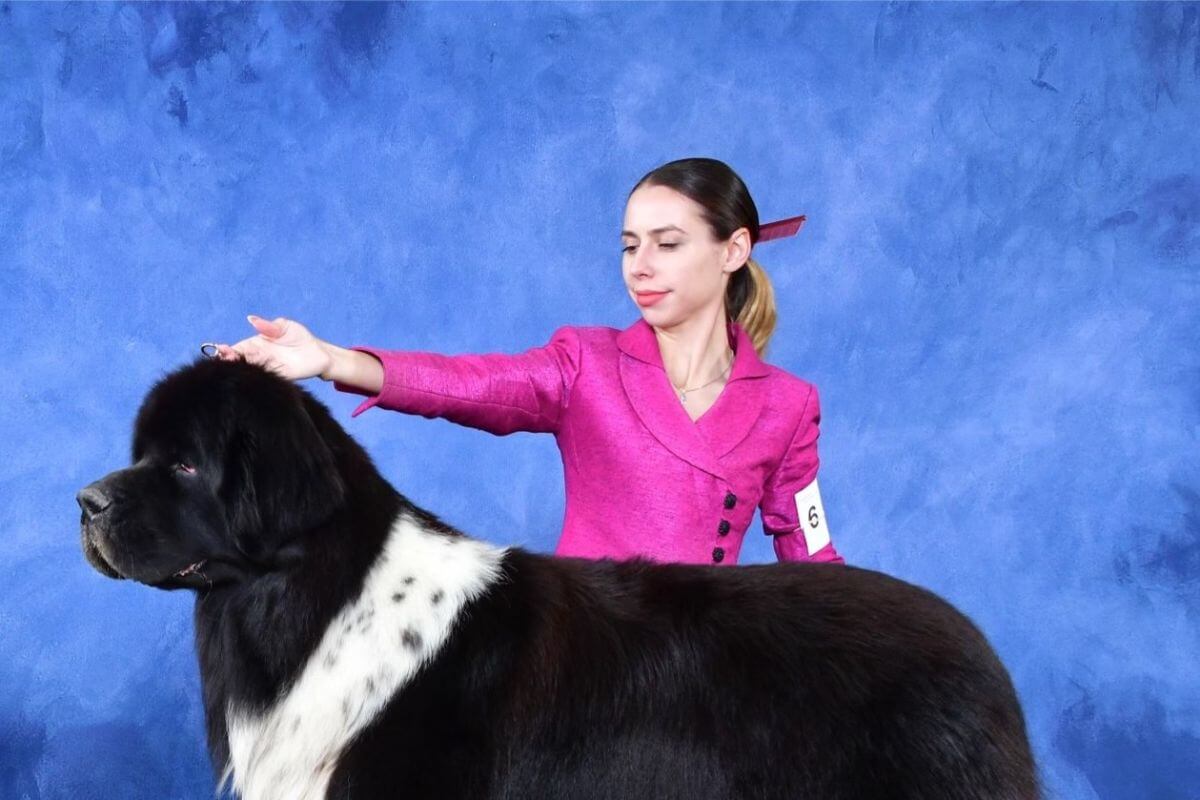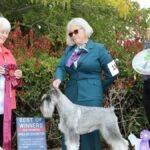Thoughts From the Professional Handler – Emily Montoya
Please tell us a little about yourself. Where do you live? How long have you been a pro handler for? How did you get your start? Who are/were your mentors and with whom did you apprentice?
Emily Montoya: My name is Emily Montoya. I am 27 years old and I live in Buena Park, California. I have been handling professionally since 2021. Like many people, my family has been in the sport for many generations. My Grandma began showing English Setters and Afghan Hounds in Colorado, and my Mother followed in her footsteps for a short time. My Mother then began Obedience and didn’t get back into Conformation until I became interested after getting our English Springer Spaniel in 2008.
I tried Agility and Obedience, but Conformation stole my heart. I quickly enrolled in Junior Handling, which led me to meet some wonderful people whom I still call friends. From there, I met my mentors—AKC Registered Handlers Stephen & Jennifer Cabral. I apprenticed for four years learning about many different breeds, including Dalmatians, Beagles, Cane Corsos, Bullmastiffs, Siberian Huskies, Vizslas, and many more. They taught me how to hone my craft in care, preparation, and presentation. To this day, I still learn and seek advice and guidance from the Cabral’s.
As a pro handler, can you share your thoughts on the sport today? Has judging changed since you first began showing dogs professionally? What do you think about the amount of shows today? Is social media good for the sport? Is it harmful?
Emily Montoya: The sport today is just as exciting as the first day I stepped foot in the ring. Throughout the years, I’ve had the pleasure of making many friends who make every day at a show just as fun as the last. Judging has changed a bit for me; but that’s mainly because I’ve started to view things differently myself. Just like a handler, judges come to a show to do their job, but they also want to have an enjoyable day. I have been told “what’s the point of being here if you can’t have a bit of fun” and that is entirely true for both handlers and judges. I honestly think the number of shows today are beginning to decrease from lack of younger members. As a younger handler myself, I try my best to join nearby clubs and offer as much support as possible.
Putting on a show is a lot of work, so I do encourage everyone to join their local shows to help keep this wonderful community alive. I think social media has benefited the world of dog shows. People are easily able to reach out for help and share useful information instantly. Social media is a great platform to reach out if someone is interested in joining this sport or even looking to apprentice under a handler or breeder. Having this at our fingertips helps to preserve the future of the sport—we cannot grow if we do not learn and listen. The negative side of social media is false rumors and information that is easily spread. Social media gives us a platform to share our thoughts to everyone, and many people use that to try to speak negatively or falsely about others. A screen is not something to hide behind. If you would not say it to their face, you should not post about it.
Have the changes made to the Rules Applying to dog shows been good for the sport of dogs? Any thoughts on Reserve Best in Show? What about earning points through a Group win or placement? Do you agree that reserve winners at a specialty should earn championship points?
Emily Montoya: I do believe the changes made to the Rules have been good for the sport of dogs. As the world changes, so must everything else. Since technology has boomed, many rules have been left with a lot of gray areas. Therefore, changes must be made. Since the start of Reserve Best in Show, there were a few mixed reviews. I for one was in favor of it. I think it’s just as big of an achievement as Best in Show. Earning points through a Group placement has been life changing.
I have shown rare breeds that wouldn’t have an entry all year long but would place in Groups. Providing a way to earn points through Group placements has really helped to earn titles on dogs that deserve it. I also agree that Reserve Winners at Specialties deserve championship points. Placing at a Specialty is a big deal, and finishing your championship there is a breeder’s dream come true. Reserve is just as deserving of points as Winners.
In your opinion, what are the biggest challenges facing the show community as a whole today and how can these be addressed? What are some positive changes you’ve seen in your profession and in the dog show community over the past decade?
Emily Montoya: The biggest challenges facing the dog show community as a whole would be the lack of consequences when a rule has been broken. I think the show boards and kennel clubs need to take the problems brought up to them more seriously. This sport revolves around family and a love for dogs, but sometimes I feel like that is forgotten. To keep this sport safe for both dogs and humans, we need to adhere to and enforce the rules that are set in place. They are there for good reason.
A positive change I’ve seen over the past decade is seeing handlers helping others. One thing I learned from my mentors is to always help those in need, and the community has really come together to do so. Oftentimes, this community is referred to as a family; sometimes we don’t all get along but we will always help each other when needed. We stand up for each other when necessary and we help each other when possible.
My message to everyone is to be kind and help those in need.
And finally, do you want to tell us anything else about yourself or do you have any messages for the rest of the fancy?
Emily Montoya: My message to everyone is to be kind and help those in need. Also, always remember that, regardless of the ribbon, you have the best dog at the show because it is your own.








